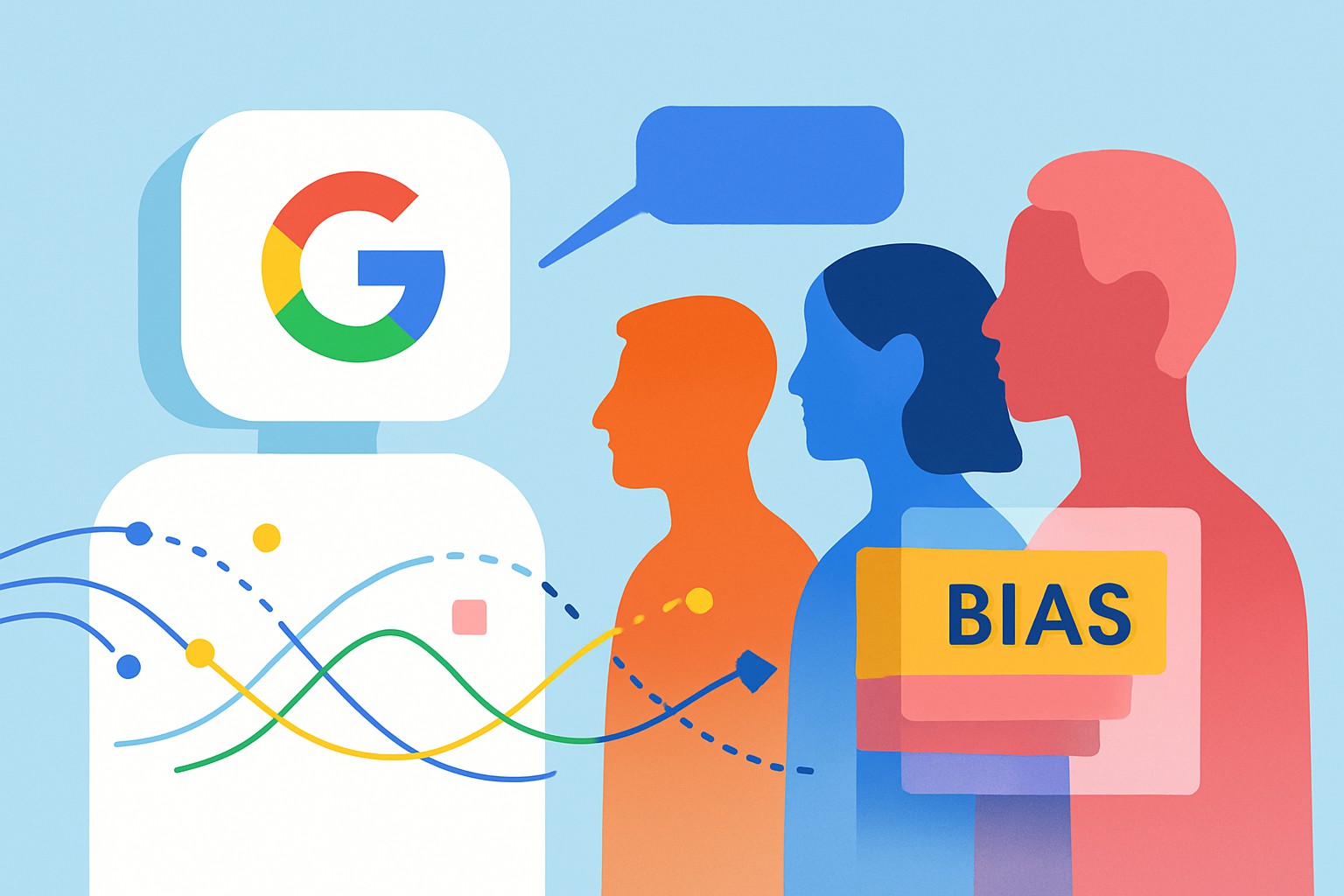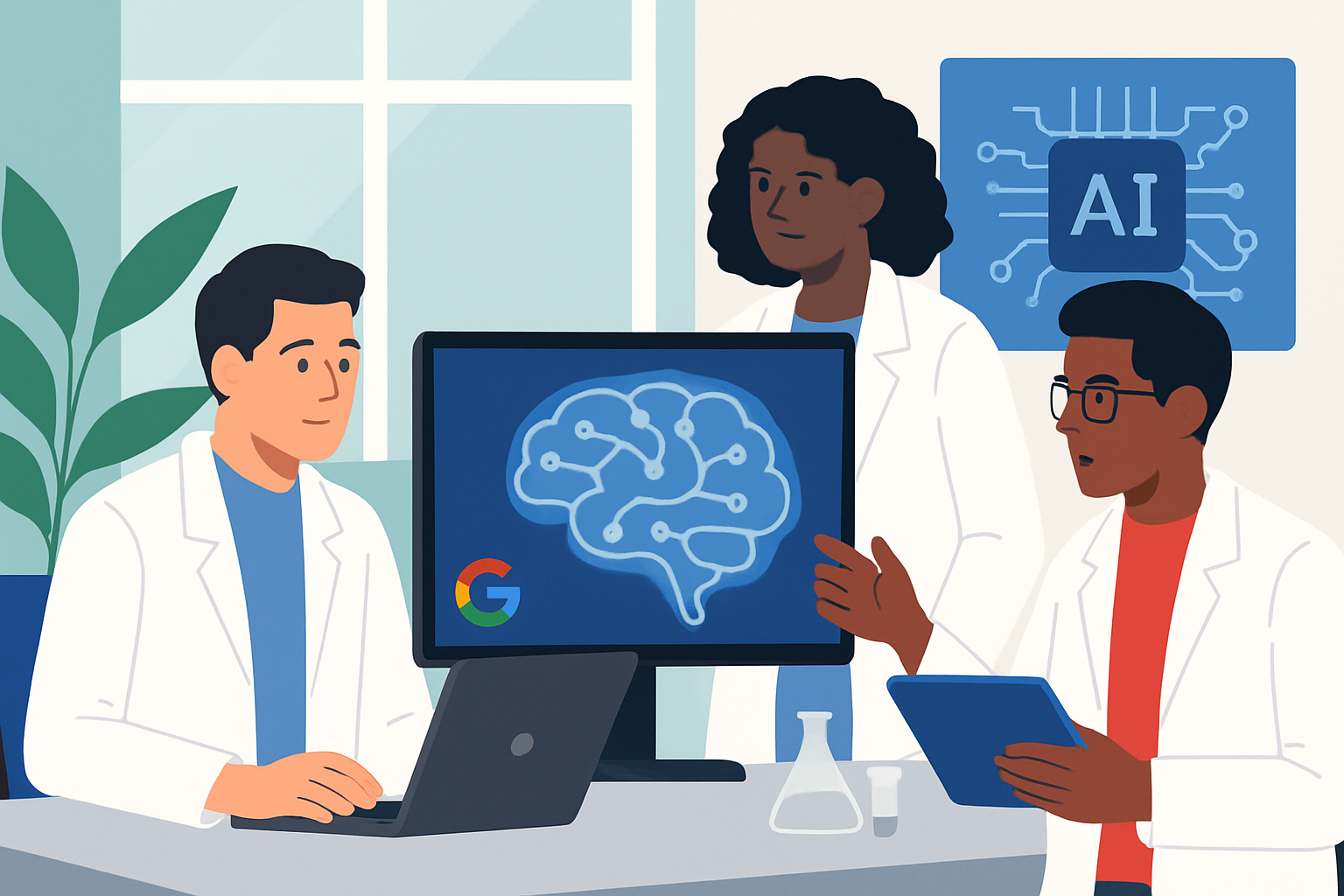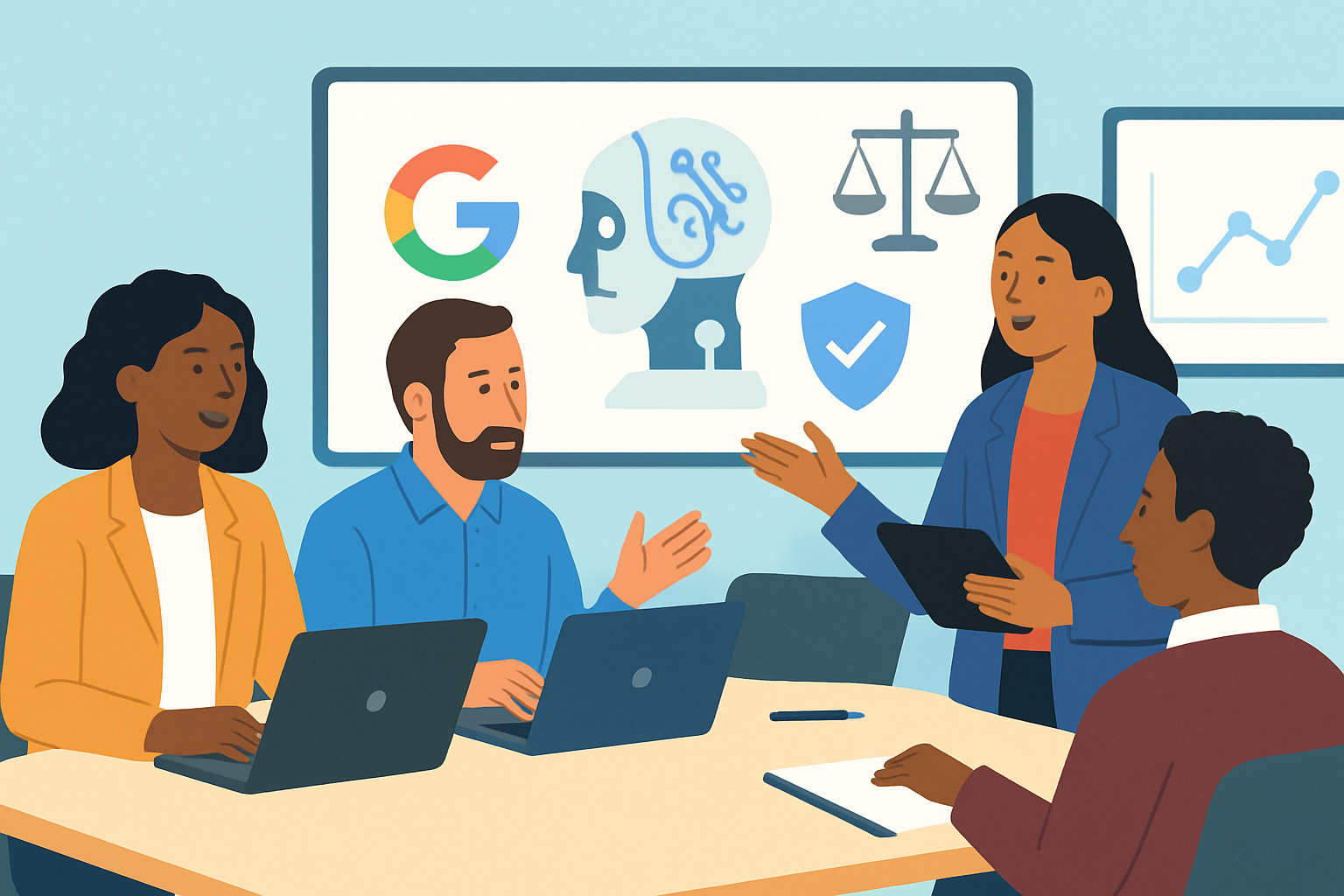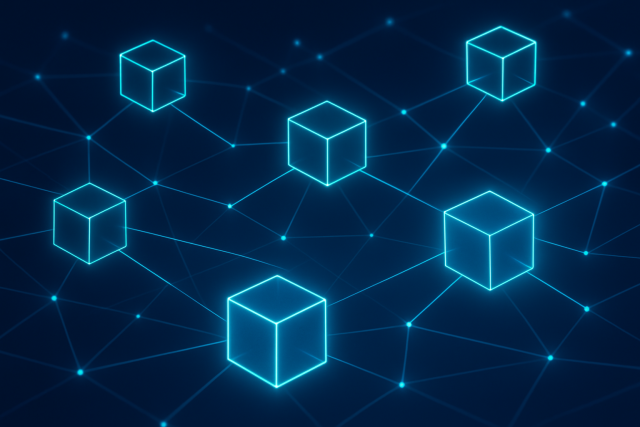Is Google AI Flawed When It Comes to Bias Issues

Artificial Intelligence is reshaping many corners of our daily lives, with Google AI firmly leading the charge. Many wonder: is Google AI flawed when it comes to bias? This article dives into what bias in AI truly means, takes a closer look at the hurdles Google encounters and how they tackle them.
Understanding AI Bias and What It Really Means
Bias in AI refers to consistent errors or unfair results produced by artificial intelligence systems, often because the data they use is skewed or incomplete. AI models rely on past data so any biases there, whether intentional or accidental, can lead to unfair outcomes that affect decisions and recommendations or how interpretations are made.
- Data bias sneaks in when the training data doesn’t quite give fair shout-outs to all groups or scenarios.
- Algorithmic bias pops up when the AI model’s design or settings unintentionally tip the scales toward certain outcomes.
- User interaction bias shows its face when the way people engage with AI ends up creating feedback loops that just pile on existing prejudices.
- Societal bias points to the bigger picture—those deep-rooted cultural and systemic inequalities that inevitably creep into AI applications.
Facial recognition technology often stumbles when trying to identify darker-skinned faces if an AI is mostly trained on images of lighter-skinned people, leading to mistakes or unfair results in real-world situations. It’s a bit like teaching someone a language but only giving them half the alphabet.
A Closer Look at Google AI’s Place in the AI Landscape
Google holds a front-row seat in the global AI arena by driving breakthroughs with its sprawling research labs and must-have products. Take Google Assistant for example—it taps into advanced natural language processing to make life smoother. Then there’s TensorFlow, an open-source AI framework that’s basically the Swiss Army knife for developers. It helps them build and roll out machine learning models with less hassle.

Google's AI research labs actively developing next-generation artificial intelligence technologies.
Bias in Google's AI systems really matters because these technologies touch the lives of billions of users every day. Whether it’s the search results that pop up when you’re looking for something, content moderation on platforms like YouTube or healthcare apps relying on AI for diagnostics, unfairness can cause serious real-world consequences.
Typical Bias Challenges Seen in Google AI Systems
There are quite a few well-documented examples that highlight the tricky challenges Google AI faces with bias. Google's image recognition systems for example have been known to misclassify images based on gender or race more often than you would hope. Autocomplete search suggestions sometimes sneak in cultural stereotypes and make you pause for a second. When it comes to language models, they have a habit of reinforcing gender or ethnic biases while generating text.
- Google’s image labeling occasionally stumbled when identifying gender or race in photos and left some users questioning how much they could trust the system.
- Facial recognition models often tripped up with people of color, sparking concerns about fairness and privacy that can’t be ignored.
- Language tools sometimes echoed cultural biases and slipped into sexist or stereotypical responses, reminding us these systems aren’t perfect.
- Search results on sensitive topics have leaned too heavily toward one viewpoint, making it harder to find a well-rounded range of information.
AI bias often ends up reflecting the same prejudices already baked into society, since these models learn from data crafted by people just like you and me. It’s not just some glitch in the system, but more of a mirror held up to social issues that really need our attention. – Dr. Anita Verma, AI Ethics Researcher
Why Does Bias Still Creep Into Google AI Even After All the Efforts to Fix It?
Even with the best of intentions and careful efforts, bias still manages to sneak into Google's AI—this happens because a handful of factors are all tangled together. Large AI models need a broad and diverse pool of data, which is nearly impossible to gather perfectly. The real world is messy and constantly evolving, making fairness a moving target that is tough to nail down.
- Training data often doesn’t fully capture all demographic groups or subtle cultural nuances. This can lead to the model having a skewed perspective.
- Real-world situations are varied and AI can struggle to generalize fairly across different social or cultural landscapes.
- Society’s norms and values are always shifting so AI needs regular tune-ups to stay current and avoid outdated biases.
- The large size and rapid deployment of AI systems make it tough to catch and fix biases before they enter real-world use.
- Bias detection and mitigation techniques are still a work in progress and often miss subtle or indirect biases hiding inside the models.
Bias in AI is like using a sieve that isn’t quite right for filtering water. The water might be crystal clear but if your filter isn’t perfect a few impurities will still sneak through. It’s like trying to catch every crumb at a picnic. Sometimes a few slip by despite your best efforts. Similarly, developers pour a ton of effort into creating unbiased AI but given quirks in data and tech some biases still find a way in.
Google strategies and solutions for tackling AI bias
Google has been rolling up its sleeves to tackle AI bias head-on and is putting fairness and transparency front and center. They’ve created tools to catch bias before it sneaks in. They have generously shared open datasets so everyone can benchmark against them and even brought in outside auditors to take a good hard look at their AI systems.
- Google has baked fairness testing tools right into TensorFlow to catch bias while models are still cooking, not after the fact.
- They openly share datasets that represent a colorful mix of groups to help researchers genuinely tackle AI inclusivity.
- Teaming up with independent auditors adds fresh eyes to keep fairness in AI models on the straight and narrow.
- Bias mitigation frameworks act like trusty sidekicks guiding teams to continually check and fine-tune algorithms.
- Inside Google, ethical guidelines quietly but firmly steer AI research and product design to make sure fairness and respect are core values.
Google's AI ethics teams roll up their sleeves and team up closely with academic researchers and advocacy groups to get a clearer picture of how AI bias impacts society.

Google's AI ethics team collaborates with researchers and advocacy groups to tackle bias in AI.
Ways Users and Developers Can Pitch In to Fix the Problem
Tackling bias is not a solo effort for Google. Users and developers need to step up as well. By watching for potential biases and sharing honest feedback and advocating for transparency, everyone helps make AI systems genuinely better.
- Report cases where Google AI seems to show a bit of bias or unfairness—your observations can really help fine-tune the system over time.
- Ask for clear explanations on how AI decisions come about and which data sources are playing a part.
- Join user feedback programs to give developers a richer tapestry of perspectives—they can’t read minds, after all.
- When building AI, make sure to include diverse data that truly reflect different demographics and everyday contexts.
- Regularly run fairness audits and bias detection tools throughout the model development journey to keep things on the right track.
When individuals take a moment to really think through AI results and champion fairness, they end up steering technology toward a future that’s a bit kinder and fairer for everyone involved.
"Building inclusive AI really boils down to teamwork—from the individuals crafting it to the everyday users—making sure a diverse chorus of voices actually shapes technology that plays fair and has everyone’s back." – Jamal Thompson, Tech Equity Advocate
Balancing Expectations: Is Google AI Flawed or Actually Getting Better?
The question of whether Google AI is flawed doesn’t have a simple yes or no answer because there’s more nuance to it. Bias and fairness issues do arise and can significantly impact marginalized groups, which is concerning. Google isn’t just standing still. They are putting a lot of effort into research and initiatives to address these challenges directly. AI fairness is a complex puzzle that lies at the intersection of social values, technical limits and ethical dilemmas. Instead of waiting for a perfectly polished AI, it’s more helpful to appreciate the progress being made and stay aware of the ongoing challenges. If you’re interested in privacy-first alternatives or want a more critical view of AI neutrality, why some believe Google AI is flawed is definitely worth checking out.
| AI Domain | Key Bias Challenges | Current Mitigation Efforts | Future Focus Areas |
|---|---|---|---|
| Image Recognition | Mistakes in labeling tied to gender and race, which can really throw a wrench in the works | Using fairness tools during training and relying on benchmark datasets to keep things on track | Pushing for more diverse datasets and rolling out real-time audits to catch slip-ups as they happen |
| Natural Language | Lingering stereotypes creeping into translations and generated text, much to our dismay | Setting up frameworks to test for bias and sticking faithfully to ethical guidelines | Building context-aware models and boosting cultural sensitivity so the AI gets it just right |
| Search Algorithms | Bias sneaks into autocomplete suggestions and result rankings, especially in touchy topics | Publishing transparency reports and bringing in outside auditors to keep us honest | Finding smarter ways to fold in user feedback, making results more trustworthy and fair |
| Healthcare AI | Accuracy is still uneven across different demographic groups, which is a real concern | Gathering more inclusive data and validating performance thoroughly in clinical settings | Broadening clinical tests and pushing for tighter regulatory reviews to raise the bar |
| Content Moderation | Inconsistent enforcement can stir worries about unfair censorship | Boosting human involvement in reviews and setting up solid feedback loops | Working towards more explainable AI and fine-tuning fairness measures to strike the right balance |
While the question 'is Google AI flawed' remains relevant due to bias concerns, staying alert to the context behind these bumps in the road and watching closely how they're being addressed helps users and developers make fair and responsible calls about the AI.




